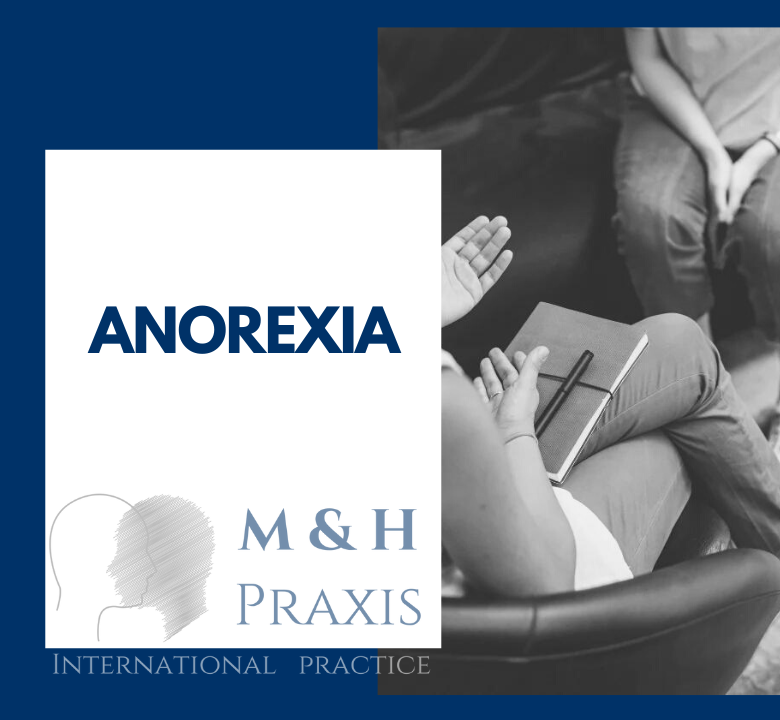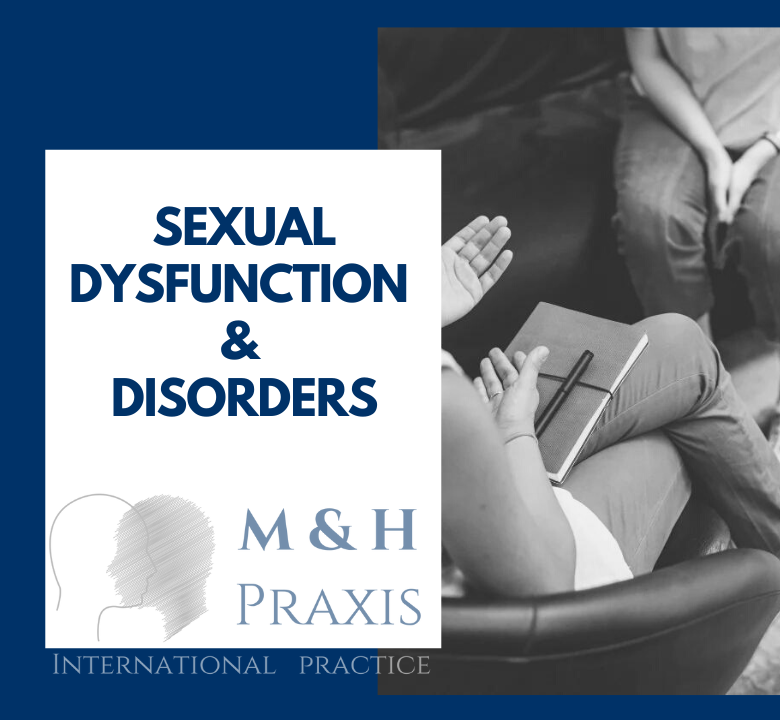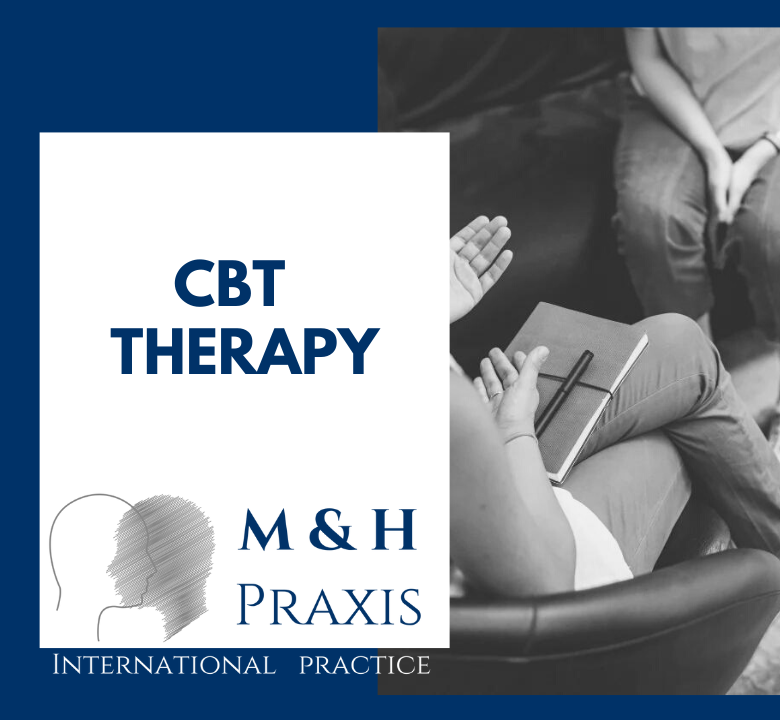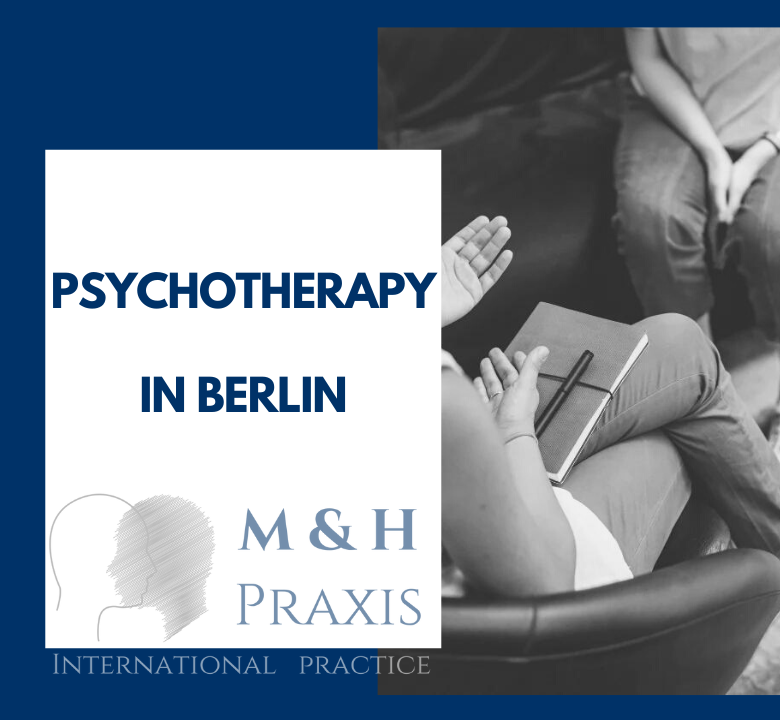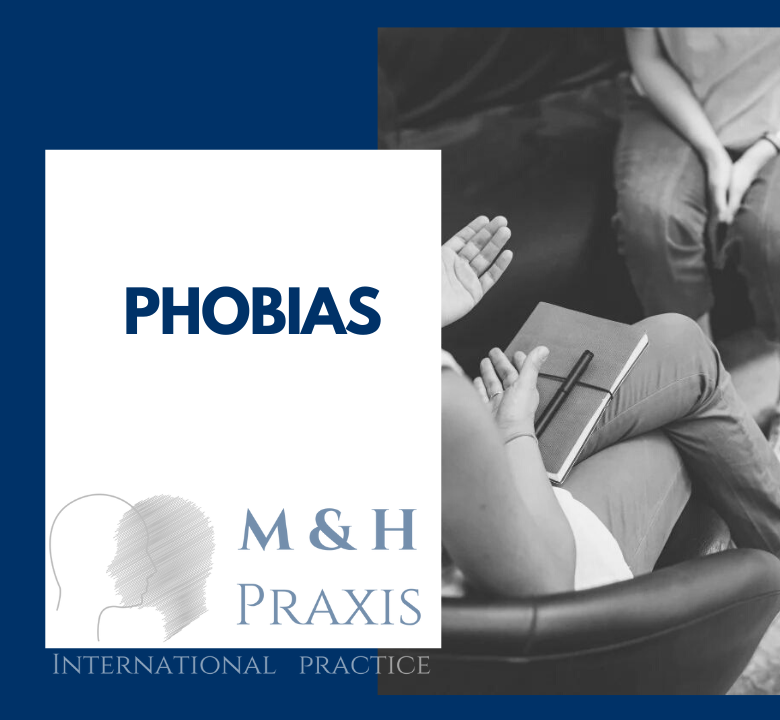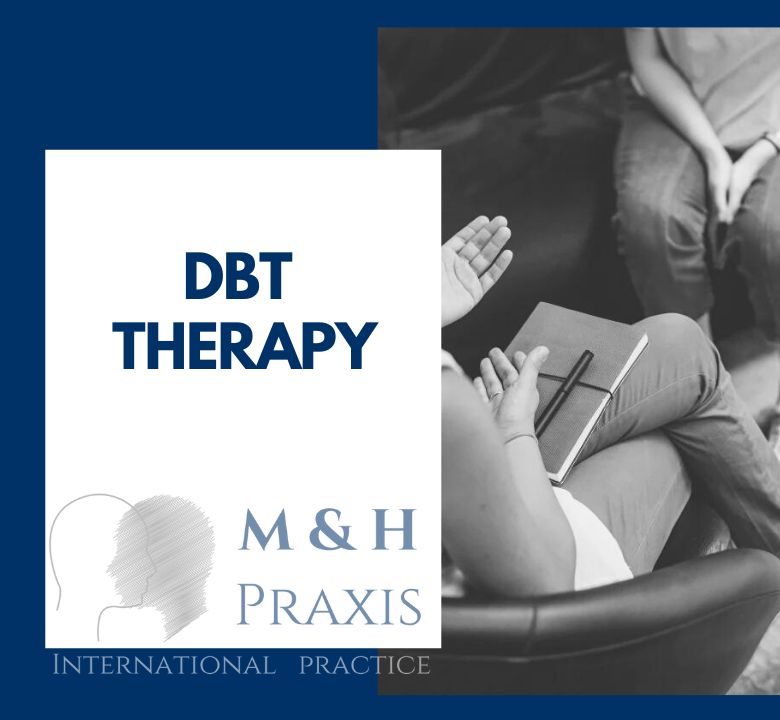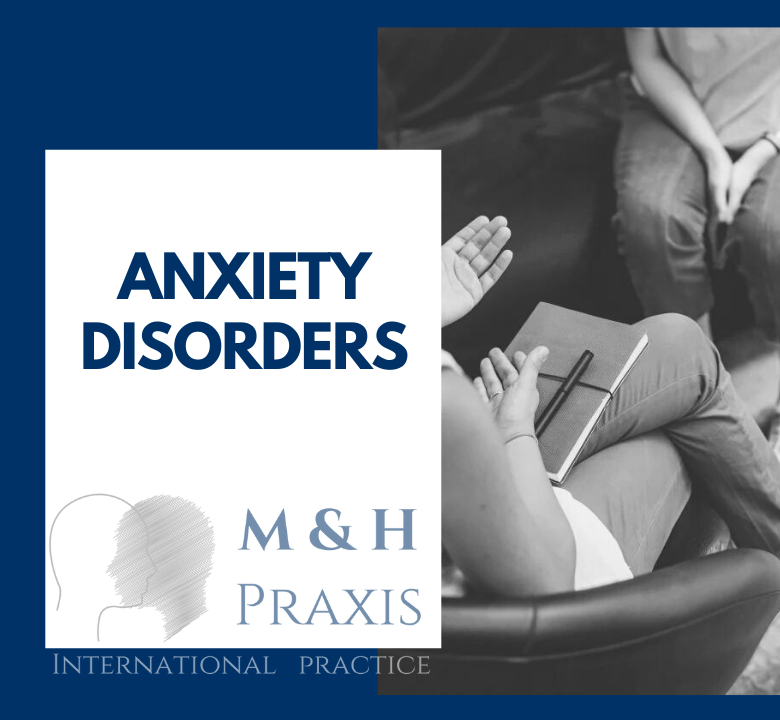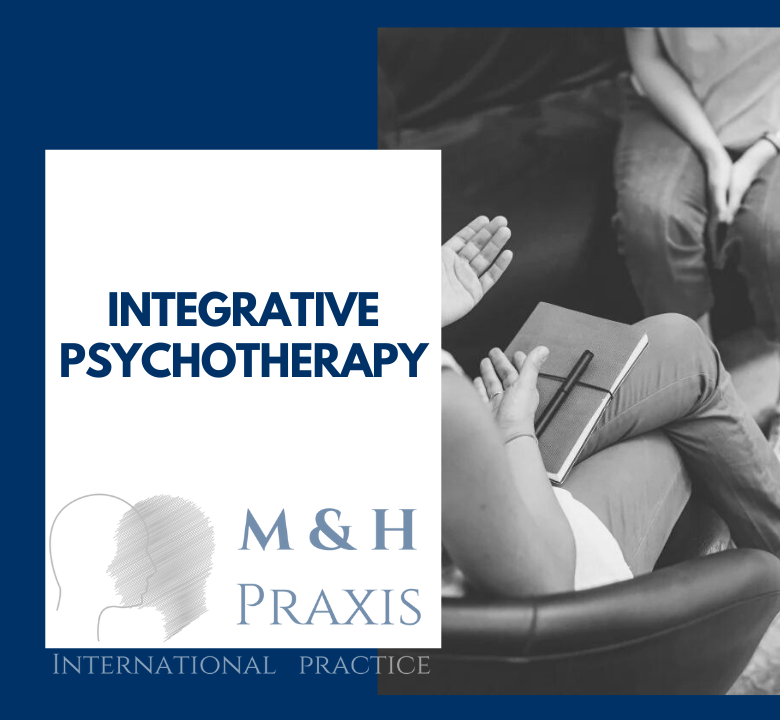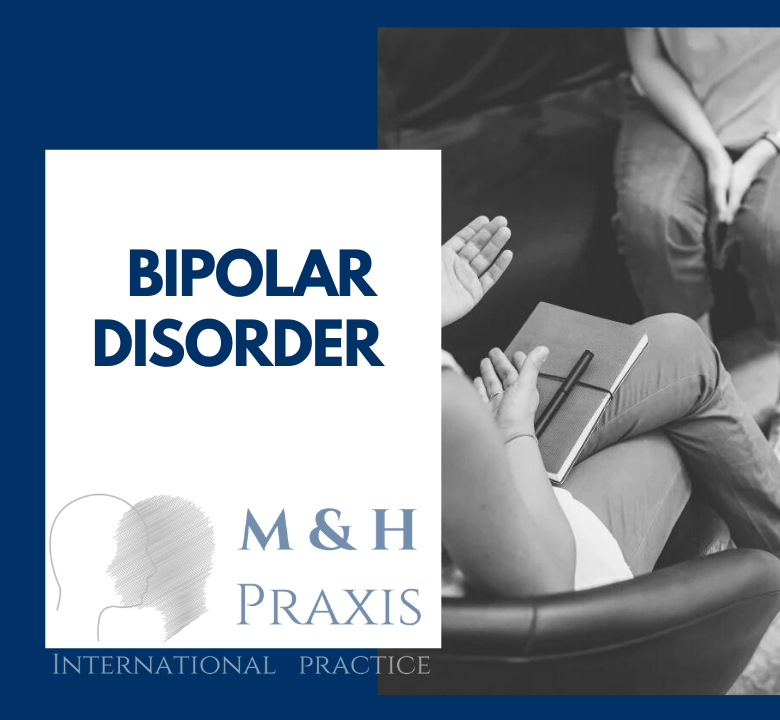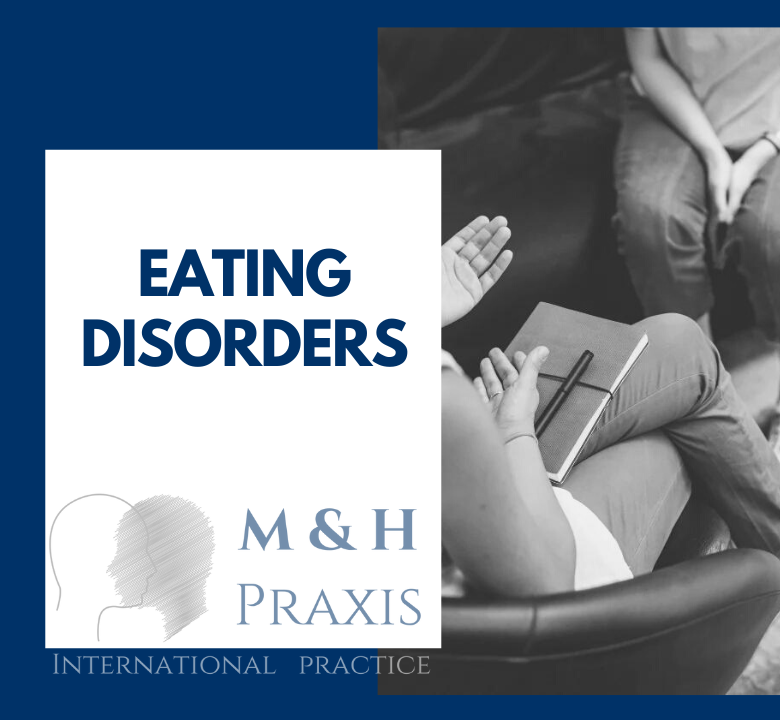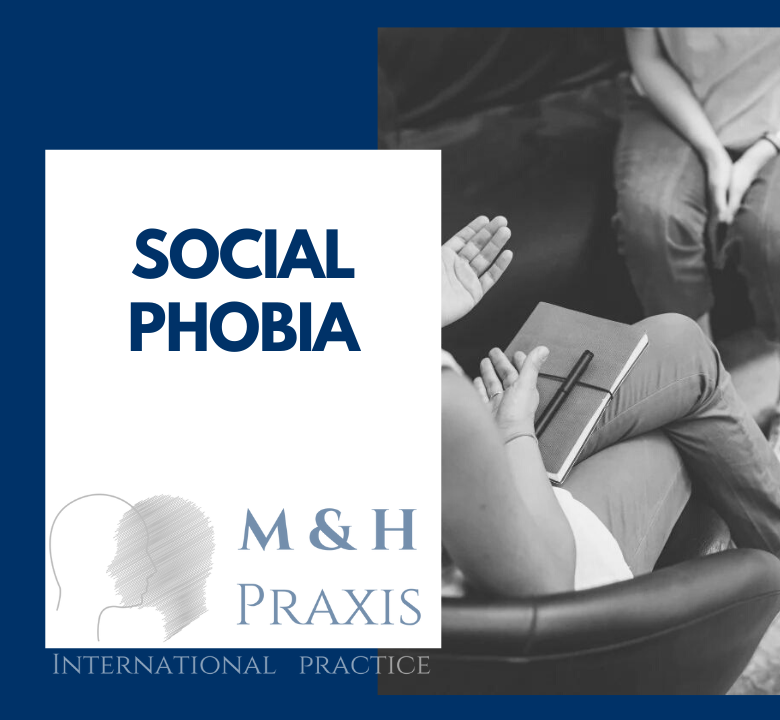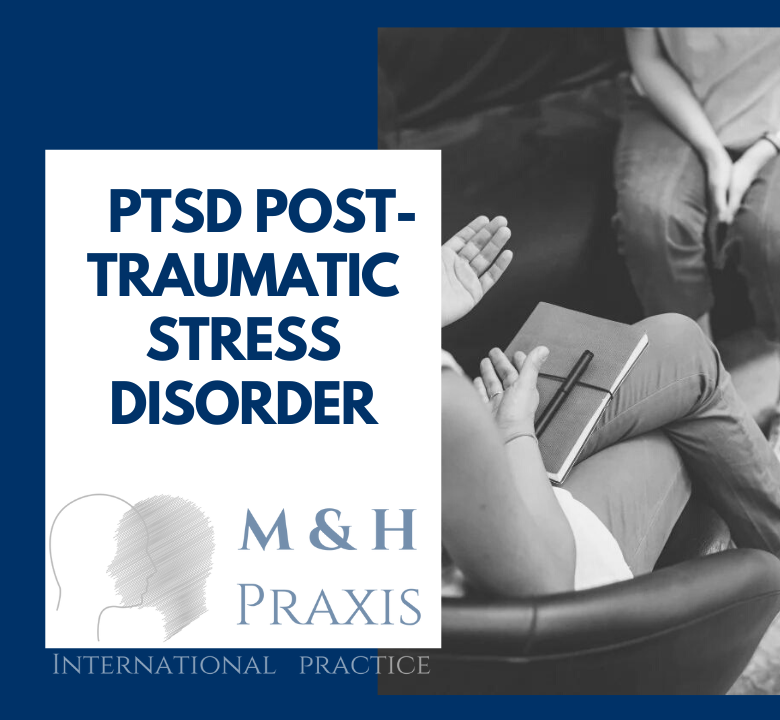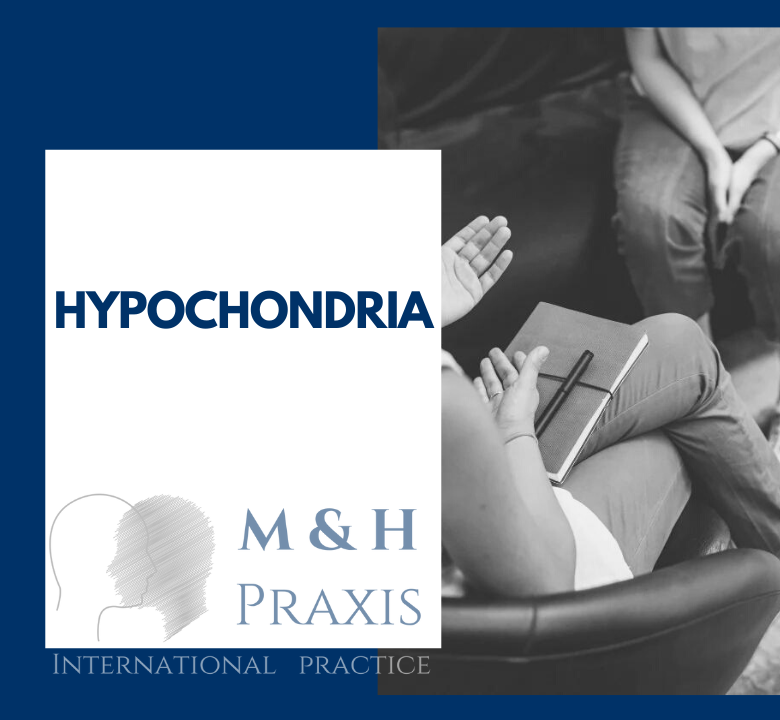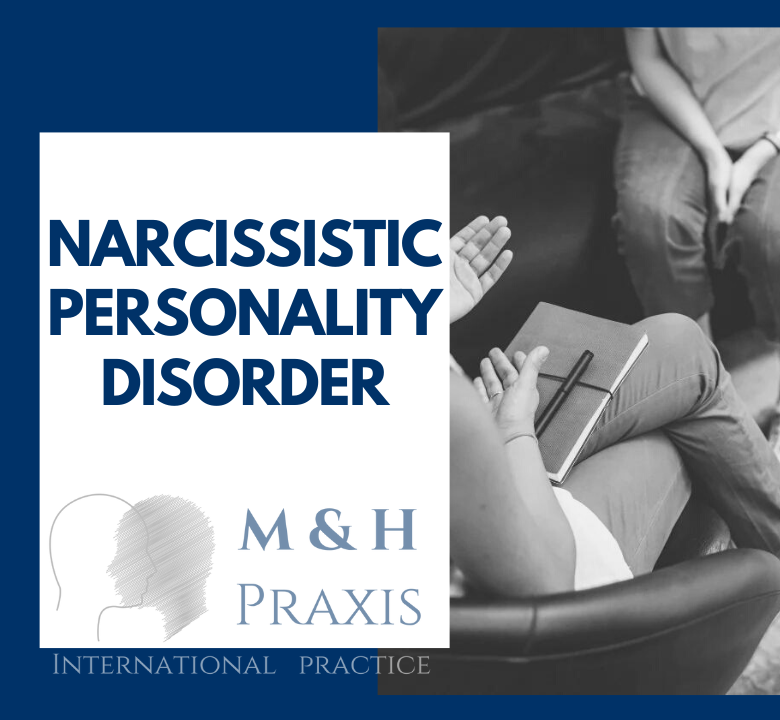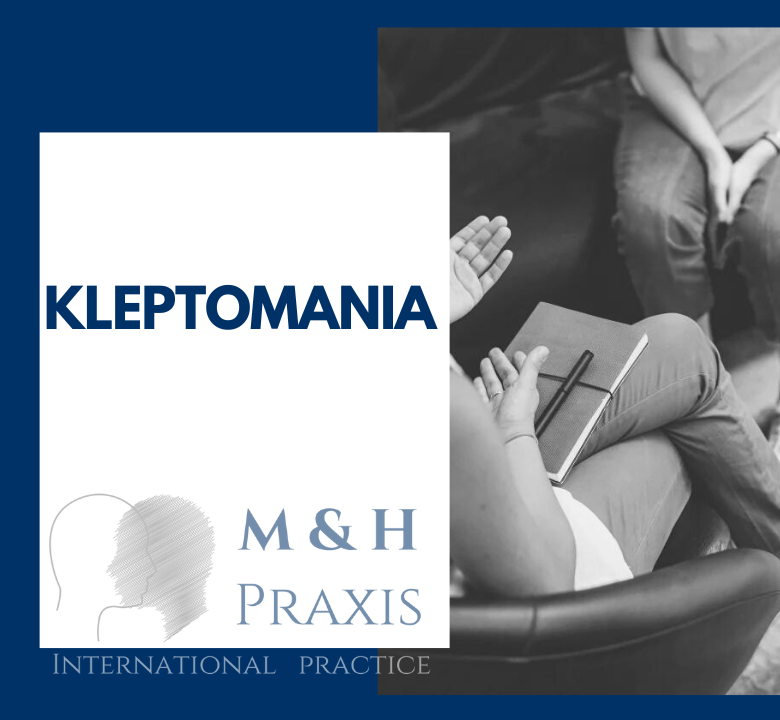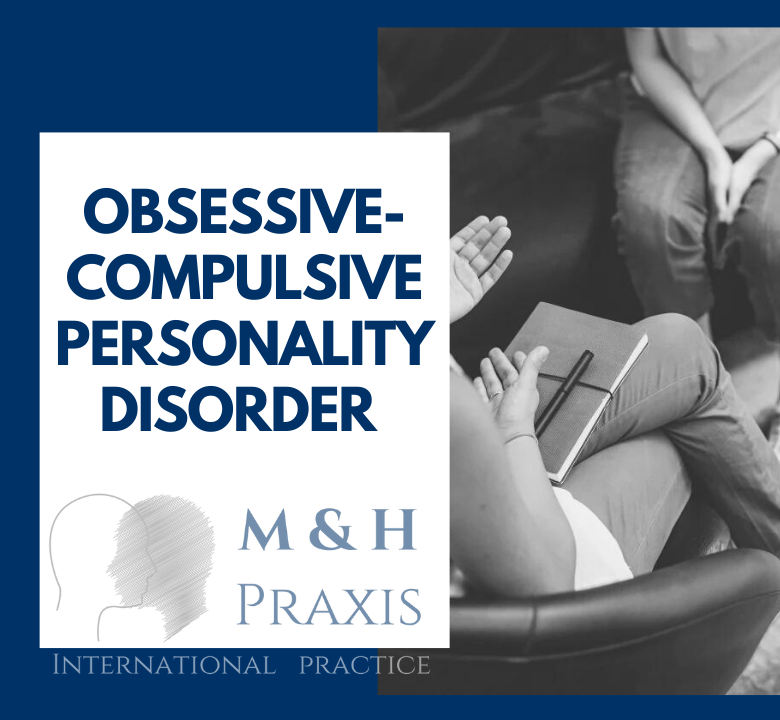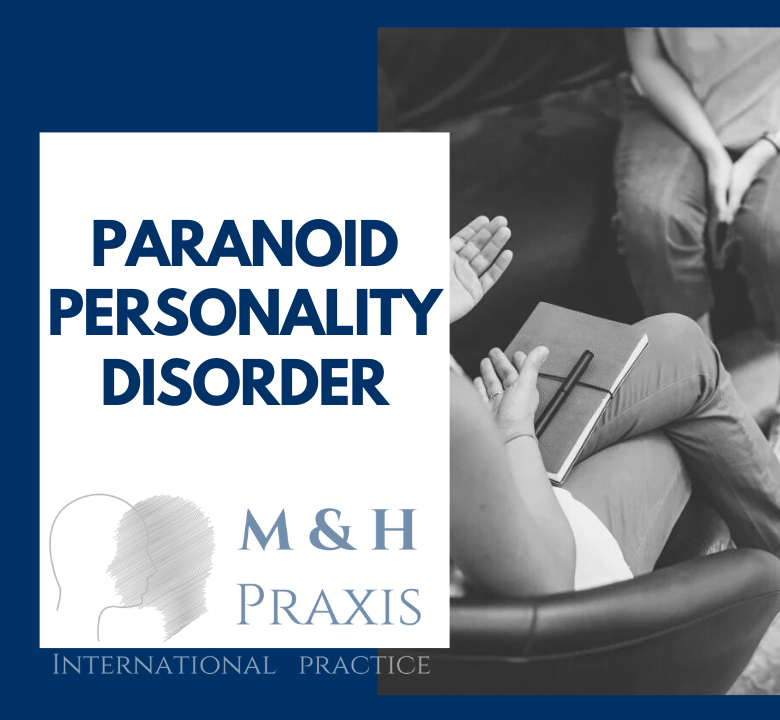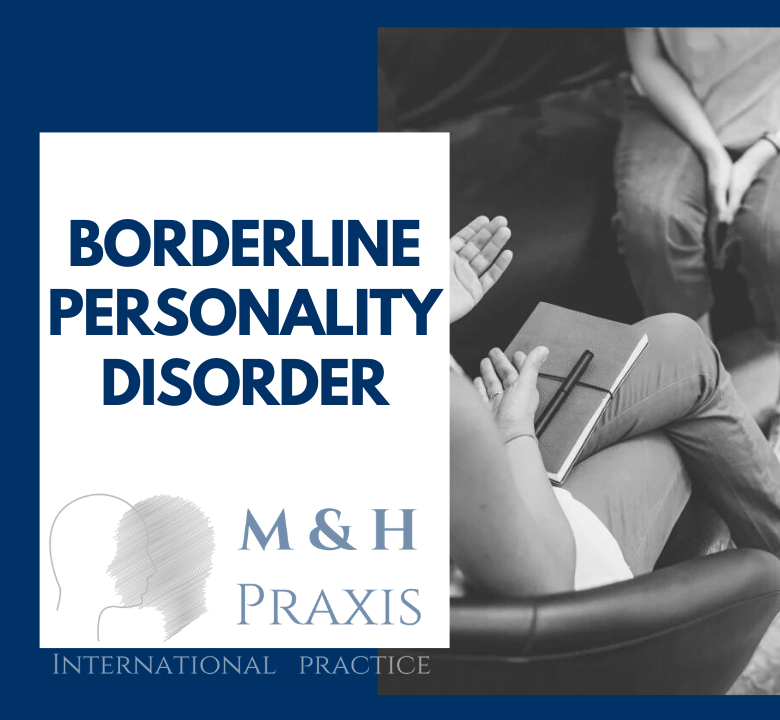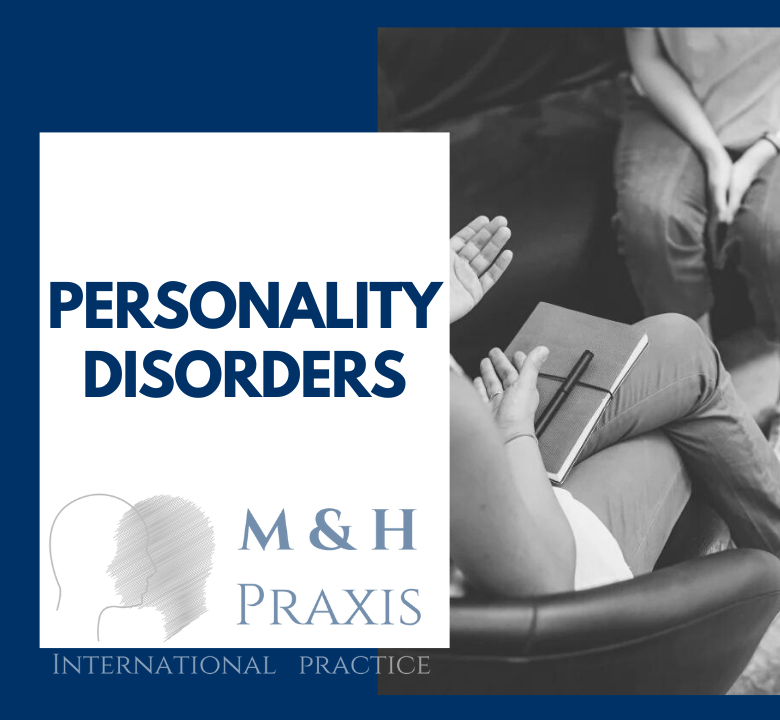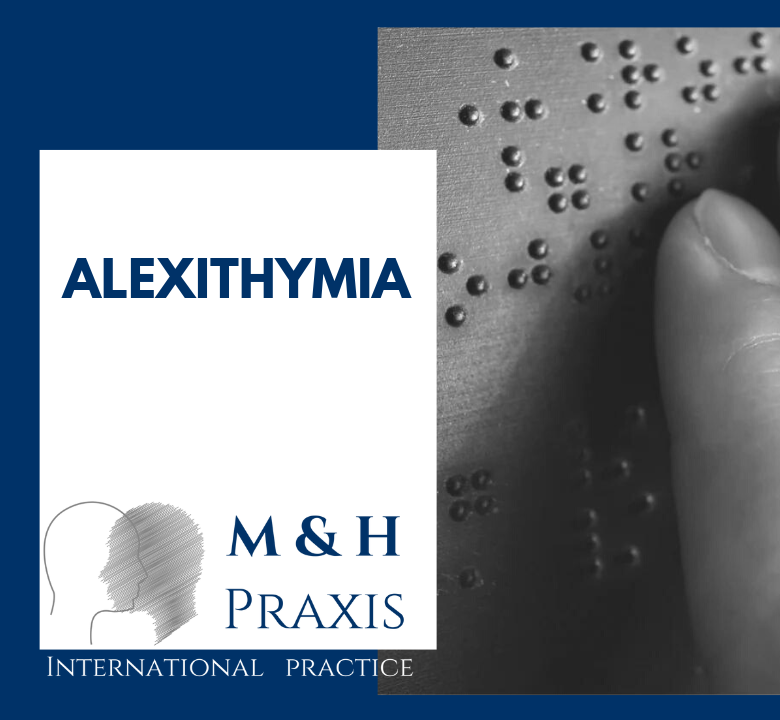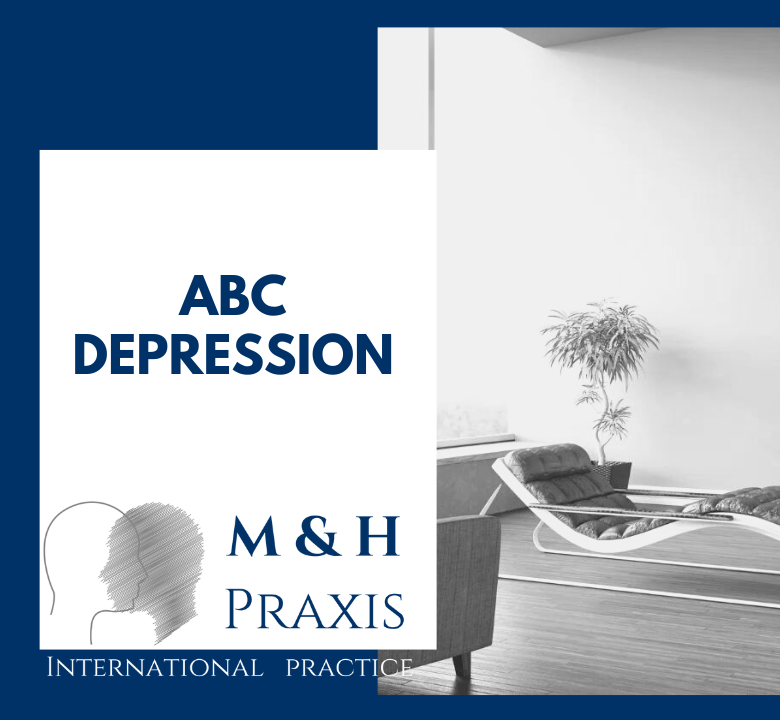M&H English speaking Clinical Psychologist - Therapist - Sexologist
Below, you will find a selection of articles about psychology and various psychological disorders. These will assist you in understanding the range of issues we address in our practice in Berlin.
Anorexia can have dire consequences on physical health due to malnutrition, which can lead to complications like cardiac arrest and weakened bones. Common symptoms of Anorexia include a feeling of being out of control around food, distorted body image, intense fear of gaining weight or becoming fat, excessive exercise and low self-esteem.
Sexual Dysfunction & Disorders, defined as disturbances or disturbances in sexual function, can arise from several sources. Physical causes include medical illnesses. As well, psychological factors may play a large role in the development of these disorders
Cognitive-behavioral therapy (CBT) sessions typically involve the individual working one-on-one with a therapist trained in CBT techniques. During the session, the therapist and individual work together to identify and challenge negative or distorted patterns of thinking and behavior that may be contributing to the individual's difficulties.
Before starting psychotherapy in Berlin, it's important to understand the different types of therapy available. Some common types include cognitive-behavioral therapy, psychodynamic therapy, and humanistic therapy. Each type of therapy has its own approach and techniques
Phobias are a type of anxiety disorder in which an individual experiences intense fear in specific situations or with certain objects. These intense fears can lead to avoidance behaviors and have a detrimental impact on an individual's daily life. The good news is that this type of anxiety can be managed through therapies such as cognitive-behavioral therapy. It's important to know that phobias differ from other anxiety disorders.
Dialectical Behavior Therapy (DBT) is an evidence-based, cognitive-behavioral psychotherapy that focuses on helping individuals regulate and manage their emotions. Specifically, it was developed to help those with chronic suicidality, all forms of self-harm behaviors, quality of life issues, and overall emotional dysregulation.
Anxiety disorders are mental health issues that involve persistent and excessive fear or worry that can interfere with everyday life. Common symptoms of an anxiety disorder include feeling tense and irritable, having trouble concentrating, sleep disturbances, physical reactions such as pounding heart, sweating palms, nausea, restlessness and difficulty breathing.
Dementia is a degenerative condition primarily affecting the elderly, though it can develop in people at any age. It is characterized by a decline in cognitive and thinking abilities such as memory, language skills, problem-solving ability, and so on. Symptoms vary from person to person but may include impaired judgment and decision-making, confusion about time and place, changes in appetite or sleep habits, difficulty performing normal everyday tasks.
Integrative psychotherapy is an approach to counseling that integrates multiple schools of thought and theories in order to create a blended, holistic treatment plan. This modality is used to better understand the client as a whole person, taking into account their individual beliefs, experiences, values, and goals. By using different perspectives and approaches, practitioners are able to create distinct therapies tailored for each unique client.
Bipolar disorder is a complex mental health condition, and a variety of factors can contribute to its development. Factors such as genetic predisposition and biological makeup have been found to contribute to the likelihood of example developing the condition, while environmental influences such as physical abuse, sexual abuse, neglect, substance abuse and traumatic experiences can also increase the risk of bipolar disorder.
Eating disorders have a dire impact on both physical and psychological health. Common physical effects include hugely complex issues related to weight, such as decreased muscle mass, suppression of the immune system, hair loss, heart problems and more. Mentally, individuals may experience high levels of anxiety, low self-esteem, distorted body image and overall emotional distress.
Social phobia, or social anxiety disorder, is an often debilitating psychological condition that is characterized by an overwhelming fear of social situations. While people may generally feel nervous when engaging in some types of interactions, such as public speaking, those diagnosed with social phobia experience much more intense levels of apprehension and stress.
Post-traumatic stress disorder (PTSD) is an anxiety disorder that can develop after a person has experienced or witnessed a traumatic event. This includes physical and sexual abuse, serious accidents or natural disasters, military combat, and other life-threatening events. Symptoms include intrusive thoughts and nightmares, negative changes in mood and feelings and avoidance.
Hypochondria is a psychological disorder in which a person experiences persistent and excessive worries about having an undiagnosed medical condition, despite there being no medical evidence to support this. The result of these worries is that they can place a significant amount of stress on the individual, leading to sleep disturbances, reduced appetite and increased anxiety.
Narcissistic Personality Disorder (NPD) is a mental health condition characterized by grandiosity and an excessive need for admiration. This can be seen in a preoccupation with fantasies of success and power, along with an unrealistic self-image. Additional symptoms and characteristics of NPD include a lack of empathy, difficulty maintaining successful interpersonal relationships, and a tendency towards arrogance.
Symptoms of this condition include recurrent stealing, the sense of tension before committing the act, a feeling of pleasure while engaging in stealing behavior, and the guilt or remorse afterwards. As with all mental disorders, it is important to seek professional help if you believe you may be affected by kleptomania, in order to properly address your symptoms and obtain effective treatment.
Causes of obsessive-compulsive personality disorder (OCPD) remain largely unknown, but it is believed to involve various contributing factors, such as biological, psychological and environmental influences. Those who suffer from OCPD tend to have a strong family history of mental health conditions as well as certain thoughts and behaviors that have been learned through repetition and modeled from their surroundings.
A paranoid personality disorder is characterised by feelings of mistrust and suspicion, as well as delusions and unfounded beliefs that others are out to harm or deceive them. People who suffer from this condition often become overly concerned with their own security, avoiding interactions with people they believe are dangerous or untrustworthy.
Common symptoms associated with BPD include intense reactions (panic, rage), impulsive behaviors (excessive spending, reckless driving), recurring suicidal thoughts or self-harming behavior, fear of abandonment and unstable relationships. Treatment options for BPD typically include psychotherapy such as Dialectical Behavior Therapy (DBT) which focuses on teaching skills to regulate emotions and develop better communication habits.
There are ten distinct types of personality disorders recognized by the Diagnostic and Statistical Manual of Mental Disorders (DSM-5). These include paranoid, schizoid, schizotypal, antisocial, borderline, histrionic, narcissistic, avoidant, dependent and obsessive-compulsive personality disorder.
Attention Deficit Hyperactivity Disorder (ADHD) is a neurodevelopmental disorder that affects the ability to focus, stay organized, time-manage and control impulses. ADHD is one of the most common disorders in childhood and can continue throughout adolescence and into adulthood.
Common symptoms associated with BPD include intense reactions (panic, rage), impulsive behaviors (excessive spending, reckless driving), recurring suicidal thoughts or self-harming behavior, fear of abandonment and unstable relationships. Treatment options for BPD typically include psychotherapy such as Dialectical Behavior Therapy (DBT) which focuses on teaching skills to regulate emotions and develop better communication habits.
Alexithymia is a personality construct characterized by difficulty in recognizing and expressing emotions. It is associated with disruptions to emotional processing, regulation, and empathy. People who have Alexithymia may have difficulty understanding their own feelings or identifying and interpreting the feelings of others.
Sometimes, people cheat because they're not getting what they need from their current relationship. This could be anything from emotional needs (like attention or affection) to physical needs (like sex). If your partner isn't giving you what you need, it can be tempting to look for it elsewhere.
Depression is a complex mental health disorder with multiple causes. Common factors that may contribute to depression include biological, psychological, and environmental sources. Biological factors such as genetic makeup, hormonal imbalances, or changes in the function of neurotransmitters can lead to depressive episodes.


